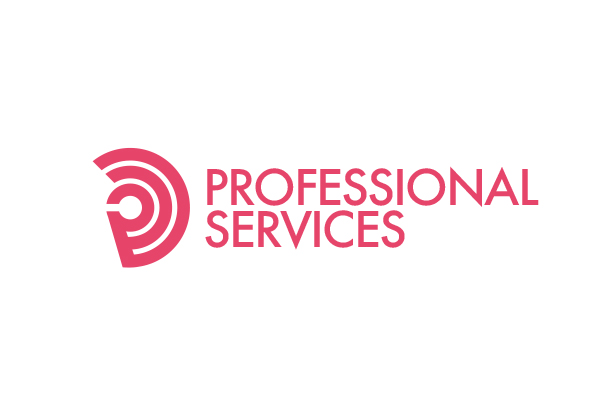
Are you considering becoming an insurance consultant? Do you have a specific type of insurance consulting background? For more information, please read this article. Here are the qualifications necessary for insurance consultants. Learn more about professional liability insurance, licensing as an insurance consultant, and exemptions to a license. We'll discuss compensation, which is typically much higher than other consulting positions. In addition, we'll explore the many benefits of becoming an insurance consultant. Consider the qualifications and experiences of the consultant you are interested in before you begin your search.
Qualifications required for insurance consultants
Insurance consulting requires a deep understanding of financial concepts. In order to meet the clients' needs, consultants need to not only be able to understand the intricacies behind insurance policies but also to be innovative and creative. A company's ability to promote an individual is often a determining factor in their advancement. However, some companies require that they hire someone from the outside while others require them take on a new role. You can achieve advancement by taking on more responsibility and learning new skills.
The education and training requirements of insurance consultants may vary from one state or another. However, applicants must hold a bachelor's Degree or equivalent work experience in an insur-related field. Some companies require that insurance consultants have at the least one year's experience in the industry. Additionally, they must have excellent interpersonal skills and computer skills. While certification may be required in certain states, it is not a requirement for all positions. Additionally, many consulting jobs involve extensive traveling, which can increase job instability.

Professional liability insurance
You've likely heard of professional liability insurance, also known as errors or omissions insurance. This type of insurance protects your business from lawsuits brought on by unhappy clients. It also covers the costs associated with any claims. Sometimes, disputes can arise between clients and consultants and result in lawsuits. This insurance is particularly useful for consultants who regularly deal with clients.
Professional liability insurance covers a wide variety of mistakes and omissions that can cause economic loss for a client. The insurance covers both intentional and unintentional breaches of contract. This insurance policy will also pay for legal fees and court costs when a client sues you because of a mistake that you made. Many policies will cover liability arising from subcontractors. However, if you have a business that relies on the use professional services, a separate policy will be required to provide professional liability insurance.
License exclusions
Insurance Law requires that all licensed insurance brokers and agents must receive continuing education. The requirements for continuing learning are described in section 2132. While long-term licensees are not exempted from CE requirements, there are some special situations where an exemption is valid. This applies to ticket agents selling travel insurance, agents with a license not issued by a state insurance board, and agents who only practice in California.
A certified insurance consultant might not receive any payment from an insurer or producer but they can still earn credits. This license is not subject the federal investment advisers Act and can serve any person or organization. After the suspension or revocation of a license, there is a one year waiting period. After a licensee's suspension or revocation, they are no longer allowed to practice under the title. These conditions may also apply to licensees from other states.

Compensation
Even though you might think that consulting businesses are relatively safe and secure, accidents and injuries can have devastating consequences for the business. Slips and falls, as well as chronic conditions like carpal tunnel syndrome, can cause serious damage. Even minor injuries can result in long-term financial damage. This is why it's important for businesses to have compensation insurance. Here's what you need to know about this business insurance coverage.
Although you may not be legally required to carry workers' compensation insurance, it is important to protect yourself and your employees. Even if you don't employ anyone directly, you're responsible for their safety and well-being. Your health insurance policy cannot cover any injuries sustained by an employee while they work for you. Workers' compensation can help you to recover lost wages from illness or injury. As a valuable piece to legal protection, workers' compensation should be considered for your business.
FAQ
Do I need legal advice?
Yes! Consultants often create contracts with clients without getting legal advice. This can lead to issues down the road. What happens if the client cancels the agreement prior to the consultant's completion? What happens if the contract stipulates that the consultant must meet certain deadlines?
To avoid any problems, it's best that you consult a lawyer.
How can I become a successful consultant
Find an area that you are passionate about. Next, you need to establish relationships. Understanding your clients' needs and operating style is essential. You must also deliver results.
You don't have to be the best at everything, but you do have to be better than everyone else. Passion is key. It is not enough to simply say, "I want to become a consultant." You must really believe in yourself and what you're doing.
How much do consultants earn?
While some consultants make $100k+ per year, most consultants only earn between $25-$50k. An average consultant salary is $39,000 This includes both salaried and hourly consultants.
Salary is dependent on experience, location and industry. It also depends on whether the consultant works from home or has a remote office.
Who hires consultants
Many organizations have consultants who help them with projects. These include small businesses, large corporations, government agencies, non-profits, education institutions, and universities.
Some consultants work directly with these organizations while others freelance. The process of hiring depends on the size and complexity the project.
You will likely go through multiple rounds of interviews when hiring consultants before you choose the candidate you feel is the best fit for the job.
What happens after the consultant completes the job?
After the consultant completes his/her work, the final report will be submitted detailing the findings of their work. This report details the project timeline, deliverables, as well any other pertinent information.
After that, you'll go through the report and decide if it meets your expectations. If it does not, you can ask for changes or terminate the contract.
What is the difference between consulting and freelancing?
Freelancers work as independent contractors and offer their services without the assistance of an agency or company. They usually charge an hourly rate based on how much time they spent on a project. Consultants typically work for agencies and companies that employ them. They are often paid monthly or annually.
Consultants have less flexibility than freelancers because they can control their work hours, and set their own prices. However, consultants often have better benefits, such as health insurance, vacation days, sick leave, retirement plans, etc.
Why would a company pay a consultant?
Consultants offer expert advice to help improve your business' performance. Consultants are not there to help you sell products.
A consultant helps companies make better decisions by providing sound analysis and recommendations for improvement.
Consultants often work with senior management to help them understand how to succeed.
They also offer leadership training and coaching to ensure that employees are able to perform at their best.
They might advise businesses on how to reduce costs, streamline processes, or increase efficiency.
Statistics
- "From there, I told them my rates were going up 25%, this is the new hourly rate, and every single one of them said 'done, fine.' (nerdwallet.com)
- 67% of consultants start their consulting businesses after quitting their jobs, while 33% start while they're still at their jobs. (consultingsuccess.com)
- Over 62% of consultants were dissatisfied with their former jobs before starting their consulting business. (consultingsuccess.com)
- On average, your program increases the sales team's performance by 33%. (consultingsuccess.com)
- So, if you help your clients increase their sales by 33%, then use a word like “revolution” instead of “increase.” (consultingsuccess.com)
External Links
How To
What's a typical day like for a Consultant?
A typical day will vary depending on the type of work you are undertaking. You'll spend your time researching new ideas and meeting clients.
You'll often have meetings with clients where you can discuss issues and solve problems. These meetings can take place over the phone, via email, online, or face to face.
You may also be asked to prepare proposals, which are documents outlining your ideas and plans for clients. Before presenting these proposals to clients, you will usually need to discuss them with a colleague or mentor.
After all the preparation, you'll need to start creating content. You might be creating articles, videos, editing photos, writing interviews, or designing websites.
Based on the scope and complexity of the project you may need research to obtain relevant statistics. You might need to determine how many customers you have, and whether they buy more than one product.
Once you have collected enough information, it's now time to present the findings to your clients. You can either present your findings in writing or orally.
After your initial consultation with clients, you need to keep in touch. You might contact them regularly to check on their progress or send them emails to confirm they have received your proposal.
Although this process can take time, it is important to stay focused and build good relationships with your clients.